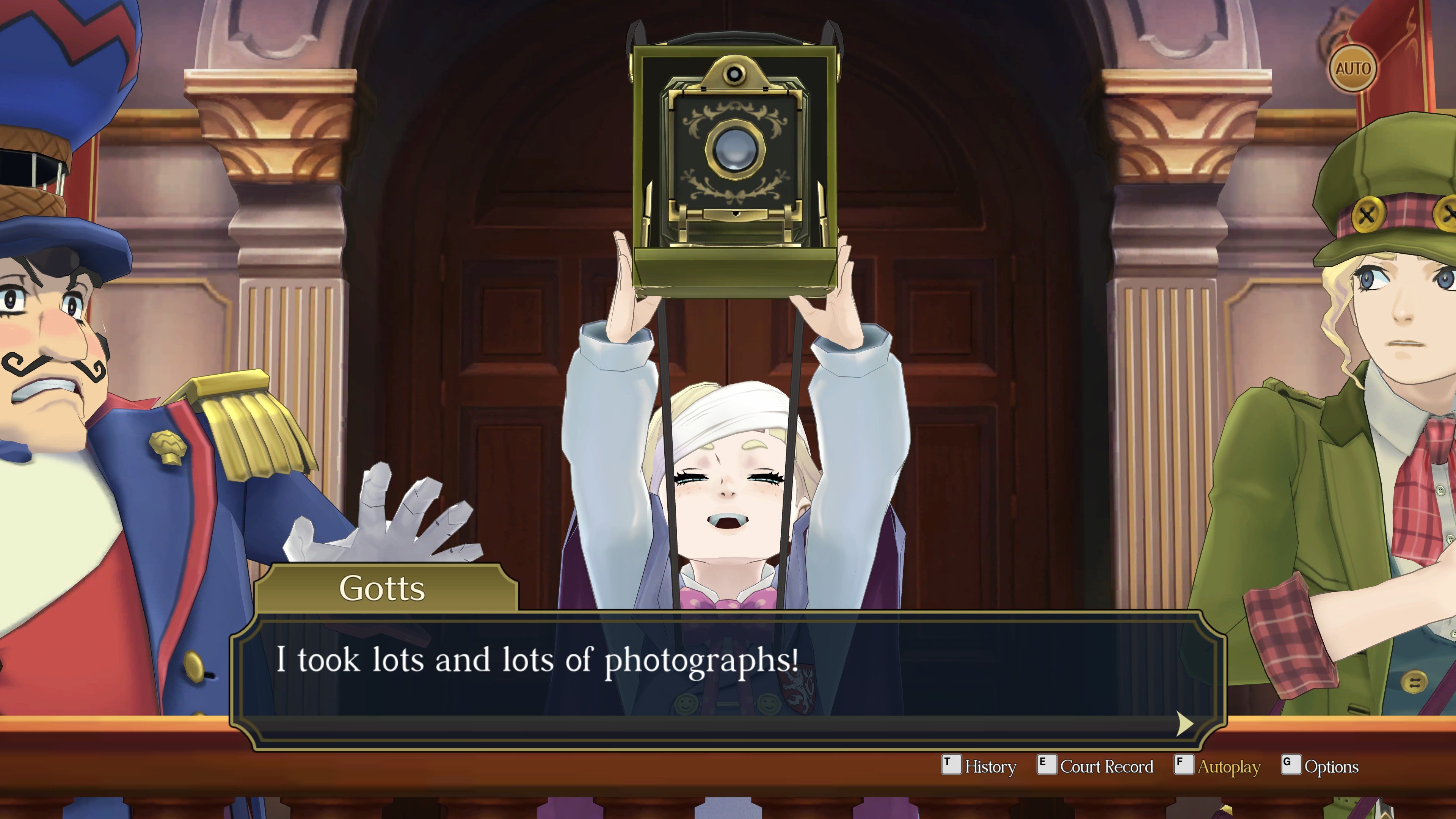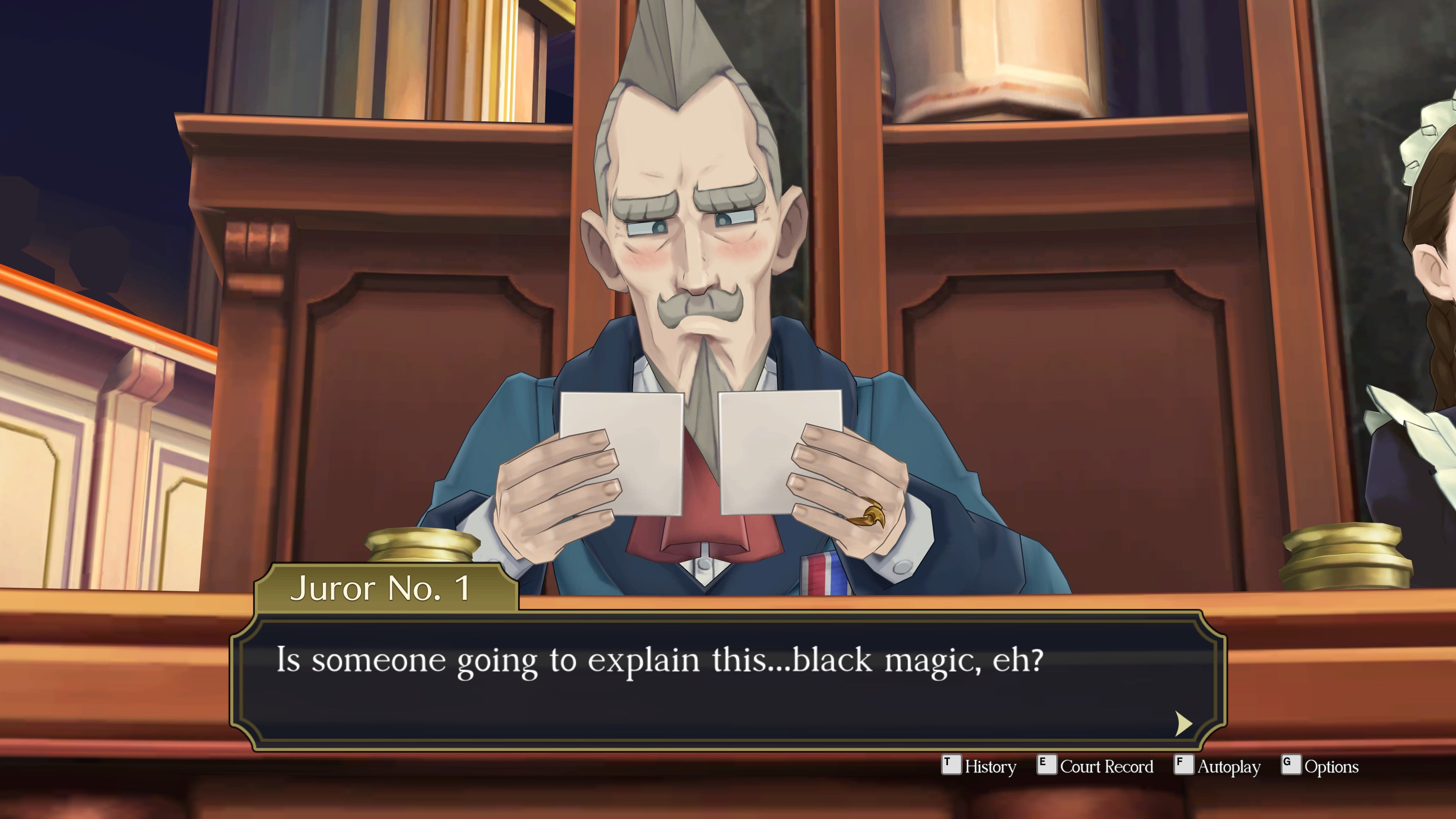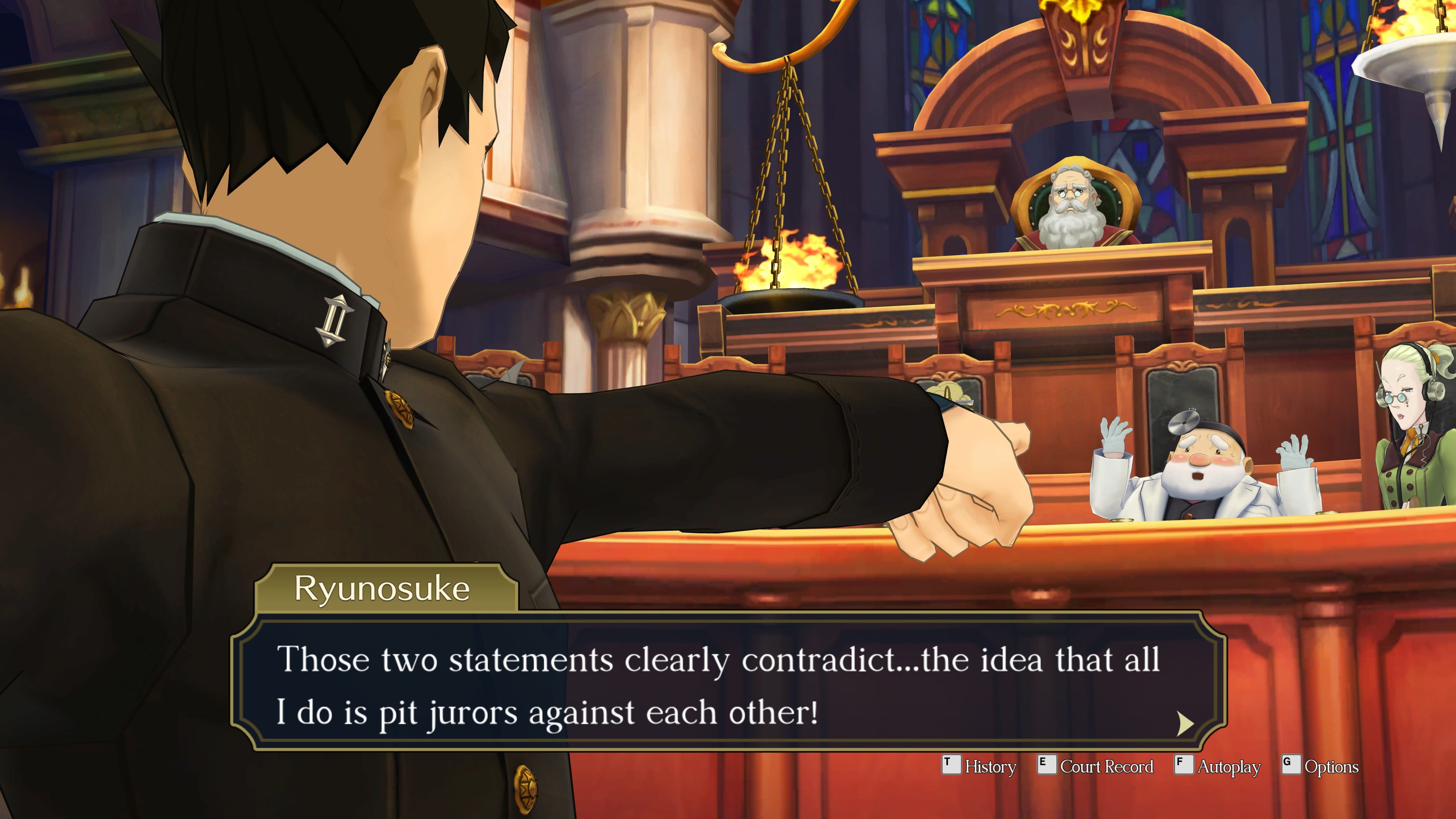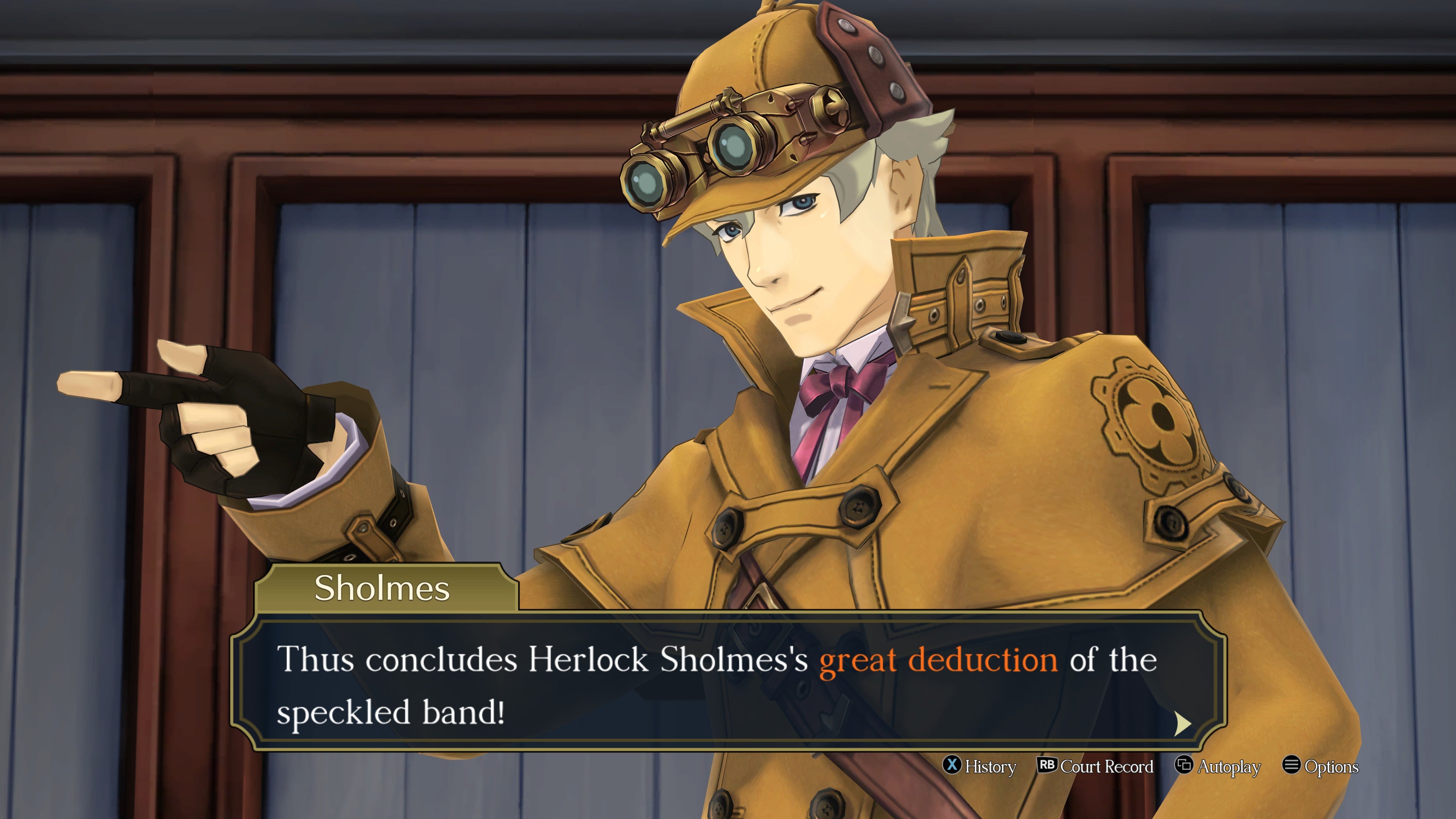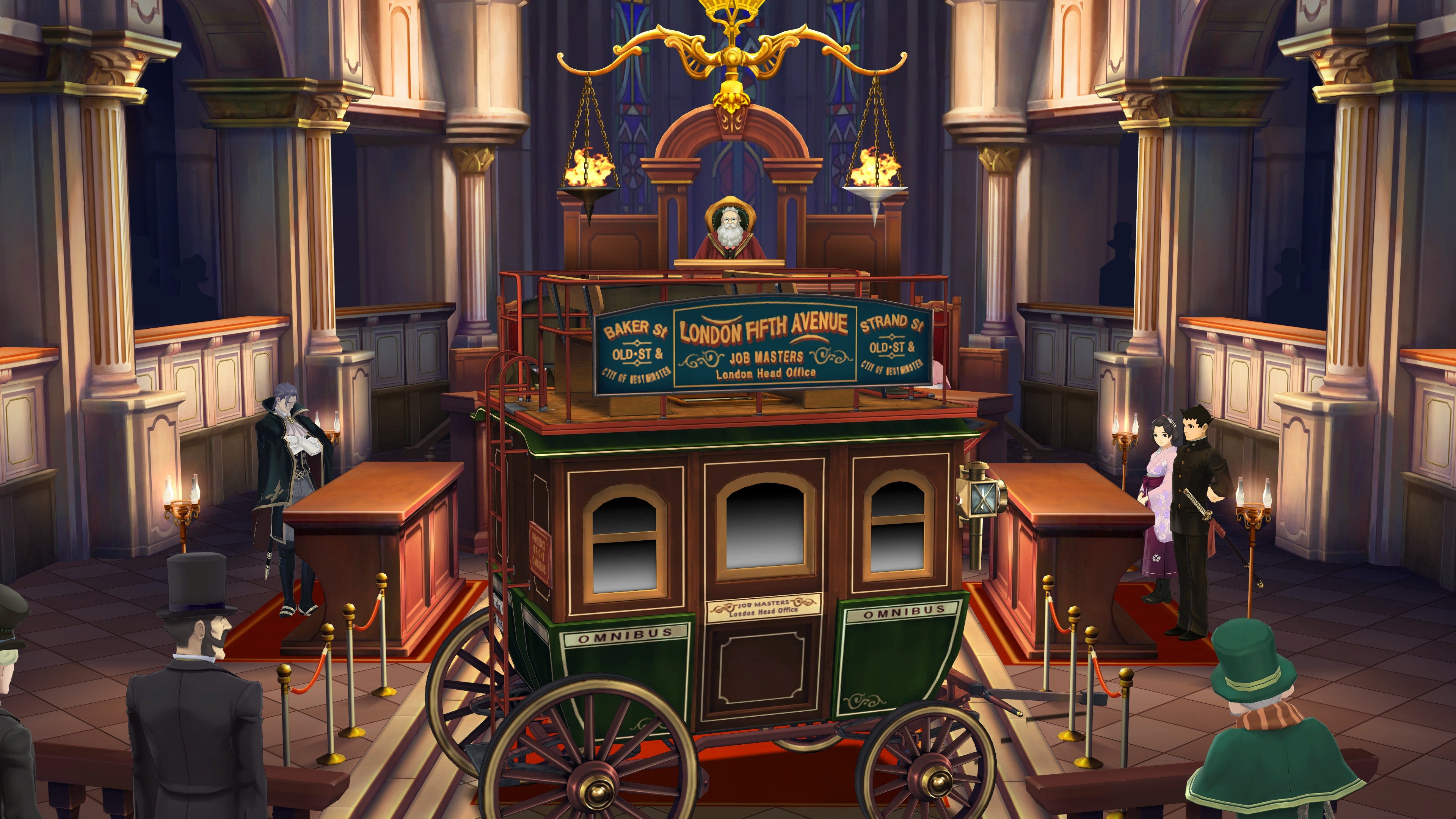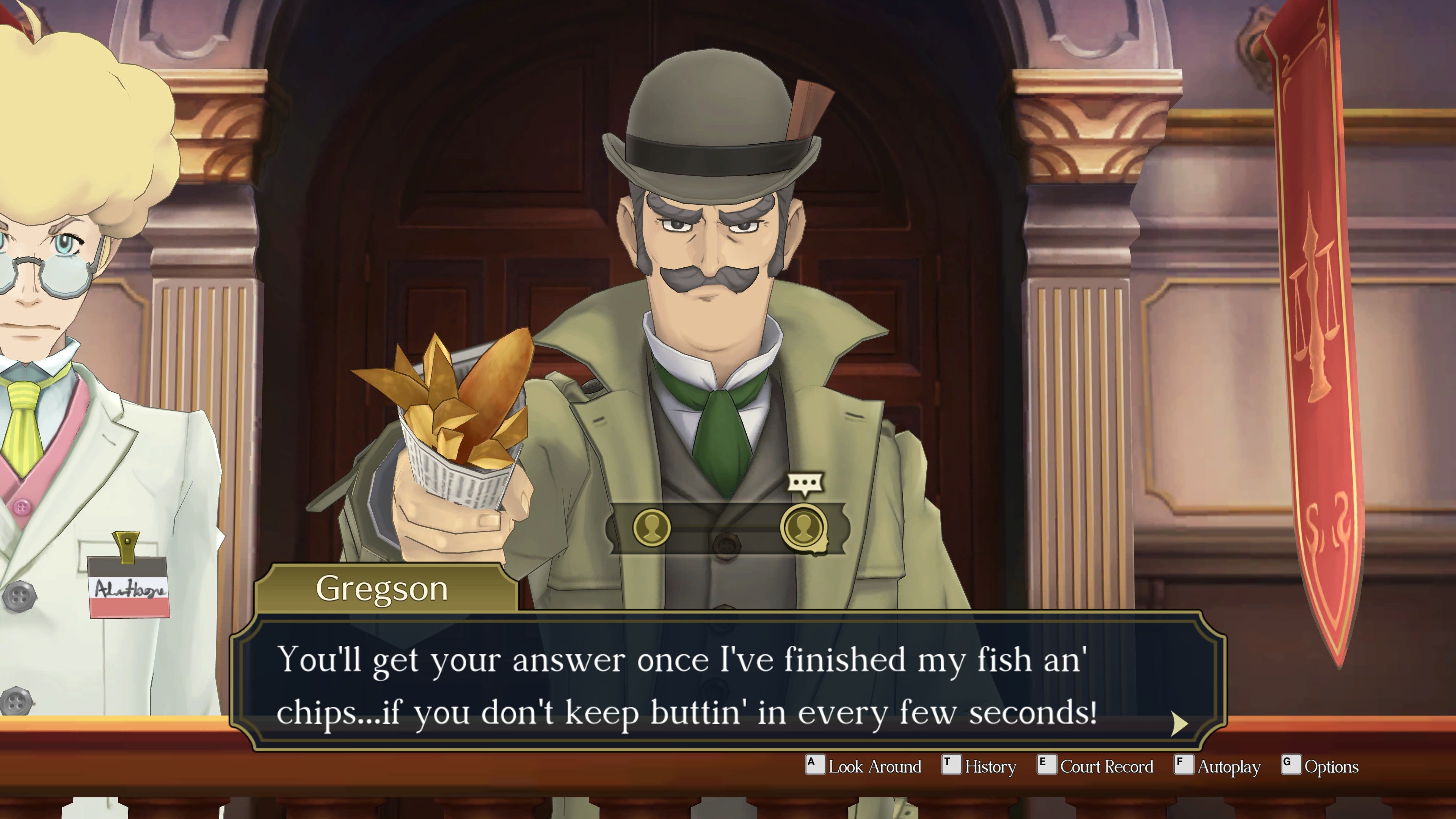So: a high stakes game. But it is as it ever was. Well, will be. With much finger pointing and yelling of “Objection!”, Ryunosuke shows the same propensity for winging it as his great-great-great grandson. The difference? A superstar sidekick in the form of one of literature’s greatest analytical minds, and with it a shift in tone towards the good old-fashioned logic and deduction that had begun to wane in the modern Ace Attorney series. Yes, the game is well and truly afoot here, and it feels both (w)right and just that Capcom have finally given this Holmesian - sorry, Sholmesian pair of games the localisation they deserve, six years after they first appeared as Japan-only Nintendo 3DS games. Crucially, with series creator Shu Takumi back at the helm for this one (he’s been sadly absent from a lot of the more recent entries in the series), The Great Ace Attorney Chronicles feels very much like classic Phoenix Wright. With its setting shorn of the psychological sensors and divination seances that define the later Ace Attorney games, it’s back to using your brain to point out flaws and contradictions in witness testimonies. Cases quickly settle into a familiar rhythm of pressing suspects to reveal more information and presenting evidence to stamp out lies and tall tales. While some clues could still do with better foreshadowing or more obvious item descriptions, getting back to basics like this makes for much more robust and mentally satisfying sleuthing. For the most part, The Great Ace Attorney Chronicles has had a pretty smooth voyage from handheld to PC. The introduction of a new auto-text feature means you can sit back and let the story unfold like a proper visual novel without constantly clicking at your mouse or keyboard to advance the dialogue, and the fully 3D character models make for a much livelier, more personable cast of characters than the flat, albeit very glossy sprites of 2019’s Ace Attorney Trilogy. Heck, if you really wanted to go down the ‘reading a detective novel’ route, there’s also a story mode that effectively solves the game for you. I wouldn’t recommend playing like this, of course - unless the idea of a 60-hour detective binge sounds appealing - but being able to switch it on and off at will to offer a helping hand during particularly tricky puzzles is very welcome. That said, there are still a few hangovers from its 3DS days that make me long to play it as it was originally intended. The final case of the first game, for example, revolves around a couple of stereoscopic 3D images that probably would have looked incredible on the 3DS back in the day, but now feel greatly reduced - especially if, like me, you’re unable to successfully cross your eyes to recreate the effect on your monitor. Seeing the images in 3D isn’t vital to solving the case, admittedly, but what would have no doubt been a great and climatic technical showcase on the 3DS is effectively transformed into an underwhelming game of spot the difference for us non-eye-crossers on PC, and it’s probably the first time a game’s made me feel physically incompetent for not being able to look at my nose properly. I was also hankering to see the original 3DS version during Ryunosuke and Herlock Sholmes’ Dances of Deduction, which see Phoenix Wright’s great-great-great-granddaddy go head to head with Holmes’ famously instantaneous crime scene assessments. With a toe-tapping soundtrack and lots of kinetic finger snaps shining bright (very Ghost Trick-like) spotlights on key bits of evidence or highlighting furtive glances from its cast of suspects, these sequences bring some much needed energy to the series’ traditionally more sedate investigation segments. Ryunosuke and Sholmes’ choreographed twirls and spins are still a sight to behold on PC, and are always great fun when they arrive. And yet, as you swing the camera round to seek out alternative answers to Holmes’ often erroneous statements, I couldn’t help but think how much more impressive it would have been in proper, glasses-free 3D. Chronicles doesn’t simply retread old ground, though. It adds a few new wrinkles to the mix, including having multiple witnesses take the stand at once, and pitting those aforementioned members of the jury against each other during last-ditch summation examinations. The former allows you to ‘pursue’ other witnesses who react strangely to the current testimony being given, often unearthing new details and perspectives that help advance the case in your favour, while the latter effectively gives you another batch of witnesses to play with. Indeed, anyone who’s played Layton vs Wright (sadly still confined to the 3DS right now) will feel right at home here, as Takumi explored both of these ideas in that game’s jury mobs. Pursuing witness reactions isn’t nearly as subtle as it during the Dances of Deduction - a big exclamation sting always makes it very obvious when you need to shift the camera off the featured witness - but watching these characters argue and play off against each other is all part of its charm, especially when they’re all so exquisitely animated. The summation exams are good fun as well. Despite taking great pains to emphasise that each jury’s comprised of completely randomly selected citizens at any given trial, there’s usually at least one expert on the matter at hand in there who can shed extra light on the crux of each case. A little contrived, perhaps, but Capcom’s universally great localisation team have a good laugh with these characters, and turning their fickle opinions against each other to resolve prejudicial deadlocks is often just as enjoyable as facing off against the main suspects. If I had one complaint about the summation exams, it’s that they often come at the same points at every trial (early on after the first chunk of witness testimony, and then later before the final act kicks in), which can sometimes make the cadence of each case feel a bit predictable. The game does poke fun at Ryunosuke repeatedly invoking this ancient, long-forgotten practice to help get himself out of a bind, but even I found myself joining in with chief prosecutor Lord van Zieks’ sceptical eye rolls after the first couple of cases. I’m nitpicking here, though, as Chronicles’ ten-strong caseload arguably features some of the series’ most memorable murders yet. They really make the most of the game’s British setting, taking us from hansom cab killings (which is brilliantly brought right into court as a fully-examinable murder scene) and pawnshop burglaries to a very Prestige-esque mystery at London’s Great Exhibition. Some characters fall victim to some stereotypes - the main police detective is never seen without his bottomless wrapper of fish and chips, for example, while Madame Tusspells (a reimagined Madame Tussauds) is literally a French witch with a bubbling cauldron of hot wax - but when so much of the game is about exploring the tensions between East and West, both sides get dealt their fair share of prejudices. There are times when Chronicles pays perhaps a bit too much lip service to the Herlock Sholmes side of the story, too. In a game that’s already quite slow to find its feet (Ryunosuke doesn’t even arrive in Britain until the first game’s third case), having to tailor the story around Sholmes’ slightly haphazard style of detectoring can sometimes weigh down the investigation parts of the game even further, resulting in long tangents about Victorian gas pipes, window fittings and the function of London pawnshops. These sections do always tie into the resulting trial, but in the moment it can sometimes be hard to enjoy. Still, it keeps you on your toes, and watching the various puzzle pieces of a case gradually slot together always results in a worthwhile pay-off. Indeed, if you’ve only ever played the original Ace Attorney Trilogy, The Great Ace Attorney Chronicles is still a massive step up from those early games, both in terms of production values and the complexity of its cases. It might not match some of Spirit Of Justice’s late-game twists, but this is definitely one of the better Phoenix Wright games in recent memory, and certainly since the original trilogy. As a prequel, it’s also a great place to start for Ace Attorney newbies, offering a great introduction to Shu Takumi’s visual novel detective series without all the daft baggage it’s accumulated in games four to six. If I were a judge presiding over video games court, the strength of the evidence is clear. Far from a villain in the Ace Attorney series, Chronicles is grade-A goodness. With the full weight of the fiery jury behind me, I hereby declare this to be a most excellent video game.
